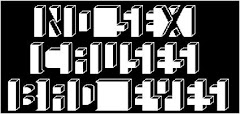 Business
BusinessYour Money
Housing Bill Has Something for Nearly Everyone
By RON LIEBER
Published: July 25, 2008
If you are ignoring the housing bailout bill because you think it benefits only troubled homeowners, you may miss out on a windfall.
Skip to next paragraph
Related
Times Topics: Housing
The bill, expected to be passed by the Senate in the next few days and then signed by President Bush, does offer incentives to certain overextended borrowers and their mortgage lenders.
But it also includes many handouts to first-time homebuyers, longtime homeowners, returning veterans and senior citizens seeking to tap their home equity without getting hit with big fees. Millions of people have the potential to benefit in some way.
Huge numbers of people buying homes for the first time, for instance, will be eligible for what amounts to an interest-free loan from the government. Meanwhile, older Americans will now be able to borrow more and possibly pay less for reverse mortgages that allow them tap the equity in their homes.
Whether larding up the bill with all these benefits is good for taxpayers is a debate for another part of the newspaper. But there is no shame in taking advantage of what is offered. In fact, you would be foolish not to.
Here are some of the new benefits:
RENEGOTIATING MORTGAGES Part of the bill is devoted to the creation of a program that may allow some people to cancel their old mortgage loans and replace them with new fixed-rate loans lasting at least 30 years. The amount of the new loans would be no more than 90 percent of what their property is actually worth now.
So who is eligible? You need to have originated your troubled loan or loans on or before Jan. 1, 2008. The loans in question must be on your primary residence. Vacation homes and investment properties are ineligible. You will also need to verify your income, which many borrowers did not have to do in recent years.
Also, as of March 1, 2008, your monthly housing payment (including the principal on all your various mortgage payments, interest, taxes and insurance) has to have been at least 31 percent of your monthly household income. So if you were earning $5,000 a month and had housing payments of $3,000, you are eligible. But if you had payments of just $1,400, you would not be, presumably because that loan is affordable given the size of your income.
Lenders, however, are not required to give you a better deal under the new law, even if you do meet the qualifications. They may not be willing to negotiate unless they think you are truly on the cusp of foreclosure.
If you manage to get a new loan, you cannot take out a home equity loan for at least five years after you get the new mortgage. You will also have to pay a 1.5 percent fee each year on the remaining balance. Finally, you have to hand over no less than 50 percent of any appreciation on the home to the government once you sell. Sell the house in less than five years, and you will have to turn over as much as all of the gain.
This program ends on Sept. 30, 2011. While it does not officially take effect until Oct. 1, lenders may be willing to start their negotiations with borrowers now.
BREAK FOR FIRST-TIME BUYERS If you are buying a home for the first time, and it is your primary residence, you are eligible for a federal tax credit of $7,500 or 10 percent of the purchase price, whichever is smaller. With a tax credit, you subtract the credit amount from the total you would otherwise pay to the Internal Revenue Service. So if you owe $1,500 and you qualify for the credit, you would end up getting a $6,000 refund.
There are two big catches, though. If you earn a modified adjusted gross income of more than $75,000, or $150,000 if you are married and filing your tax return jointly, the credit starts to phase out. For single people, it phases out completely at $95,000 of annual income, while for married people filing jointly, it phases out at $170,000.
But you have to pay back the credit over the next 15 years, in equal amounts each year when you pay your federal taxes. That makes this more like an interest-free loan than a true credit. According to the National Association of Realtors, there were about 2.5 million first-time home buyers in 2007. A large proportion of them would have qualified for this credit, but whether it is enough to push would-be buyers over the edge this year remains to be seen.
The tax credit is retroactive to home purchases on April 9, 2008, and expires on July 1, 2009. If you purchase a home from Jan. 1, 2009 to June 30, 2009, you can claim the tax credit on your 2008 tax return.
ADDITIONAL DEDUCTION If you are a homeowner who takes the standard deduction on your federal income taxes and does not itemize, this one is for you. You can now take an additional federal tax deduction of $500, or $1,000 if you are married and filing your tax returns jointly. Again, this one is gravy; you get it in addition to the standard deduction.
Since itemizers are often people who pay a lot of mortgage interest, this deduction will generally benefit people who pay little or none, like those who have paid off their mortgages entirely or close to it. There is one hitch here: you will need to report the property taxes you paid on your tax form. If they are less than $500 (or $1,000 if you are married and filing a joint return), your deduction will be limited to the amount of the property tax you paid.
REVERSE MORTGAGE CHANGES Reverse mortgages allow older Americans, generally 62 and older, to get a lump sum or a monthly check that comes out of their home equity. They do not have to pay the money back until they stop living there permanently or their heirs sell the house.
The problem with these loans, however, is that they often come with high fees. Moreover, some salespeople pressure borrowers who are applying for the loan to purchase annuities, long-term care insurance or other financial products that are not necessarily in the borrower’s best interest.
The bill tries to address both issues. First, it limits origination fees on reverse mortgages at 2 percent of any loan up to $200,000 and 1 percent beyond that, up to a maximum of $6,000.
The bill also states explicitly that borrowers cannot be forced to purchase an annuity or other financial or insurance product as a condition of qualifying for a reverse mortgage.
Finally, the bill raises the maximum amount that people can borrow. Before, the limits were set on a county by county basis, according to AARP’s legislative policy director, David Certner. The biggest allowable mortgage available anywhere was just over $400,000. Now, there is a nationwide cap of $625,500.
REDEFINITION OF JUMBO LOANS Often, if you want the mortgage loan with the lowest possible interest rate, it has to be small enough to be purchased by Fannie Mae or Freddie Mac from whatever bank or other institution originated it.
Under the new bill, Fannie and Freddie have permanent authority to buy bigger loans in areas with high housing costs. (Temporary measures allow them to buy bigger loans, but those expire on Dec. 31.) They can buy loans up to 115 percent of the local median home price, though they cannot buy any loans larger than $625,500. Any larger loan will generally be a jumbo loan, which will cost more in interest.
A BREAK FOR VETERANS Lenders will have to wait nine months, instead of 90 days, before beginning foreclosure proceedings on homes owned by someone returning from the military. Lenders must also wait a year before raising interest rates on a mortgage held by someone returning from military service.
These provisions expire on Dec. 31, 2010.
Is your lender negotiating? Tell all to rlieber@nytimes.com
http://www.nytimes.com/2008/07/25/business/25money.html








+(3).jpg)



.jpg)
+(3).jpg)


No comments:
Post a Comment